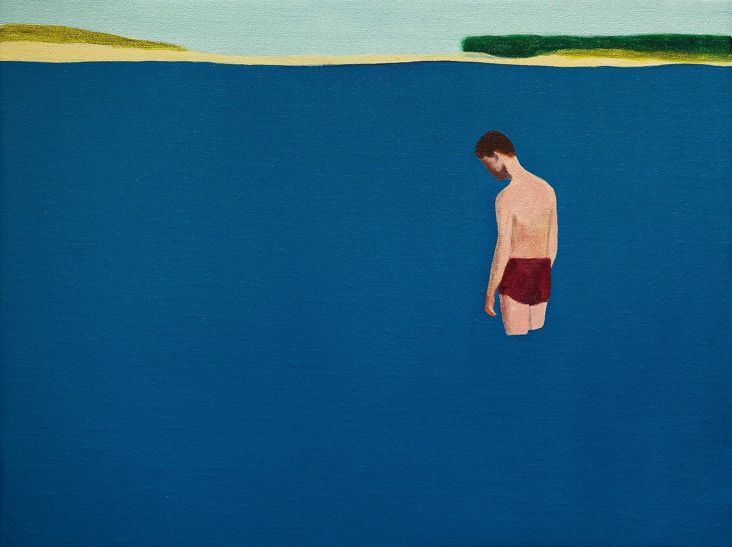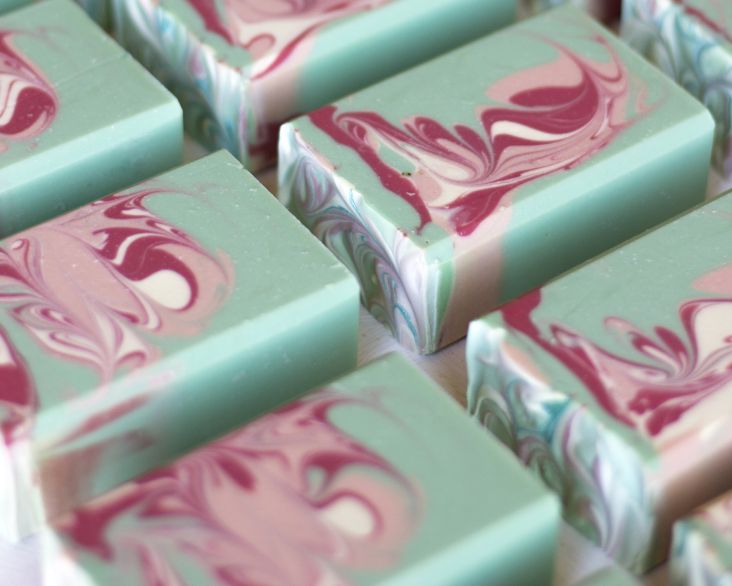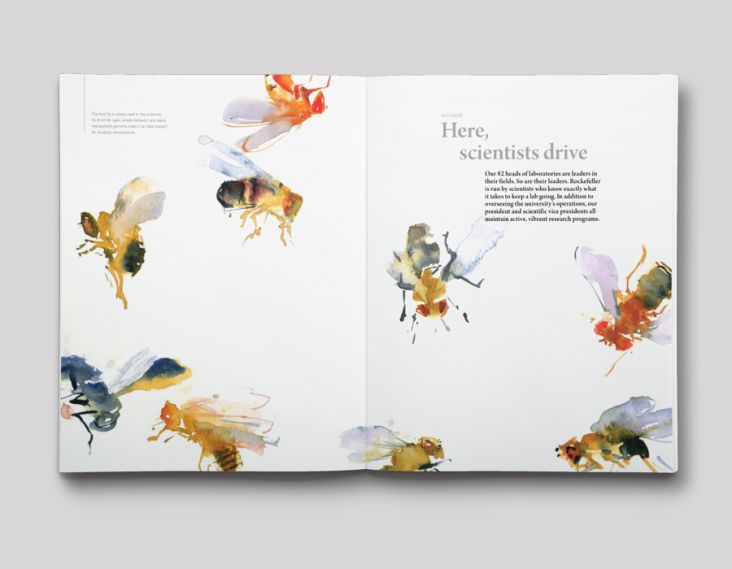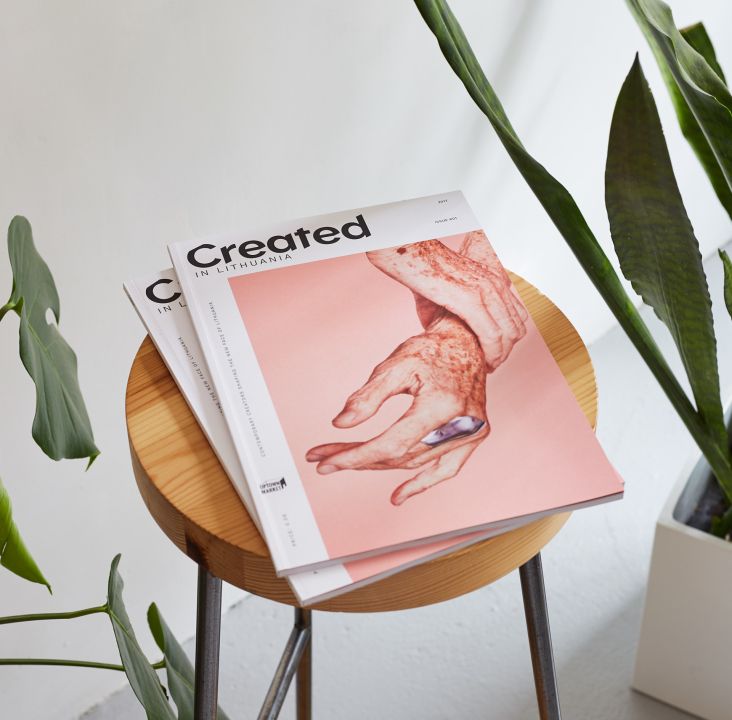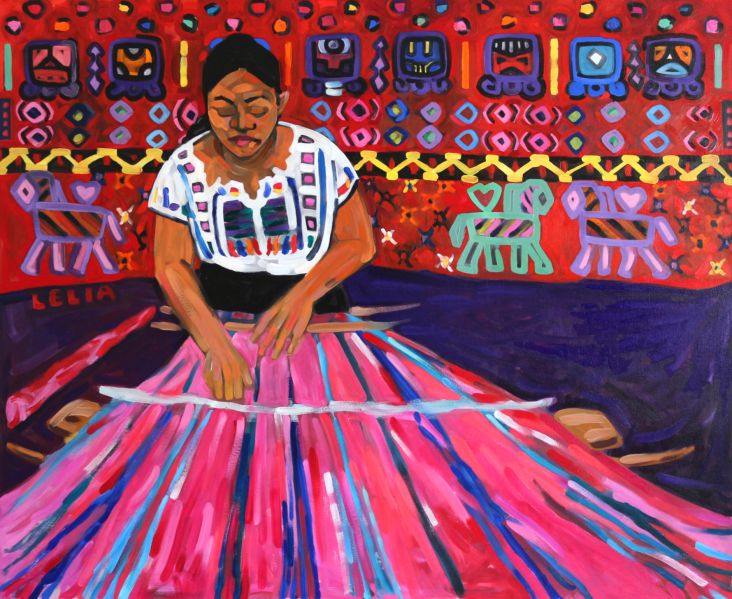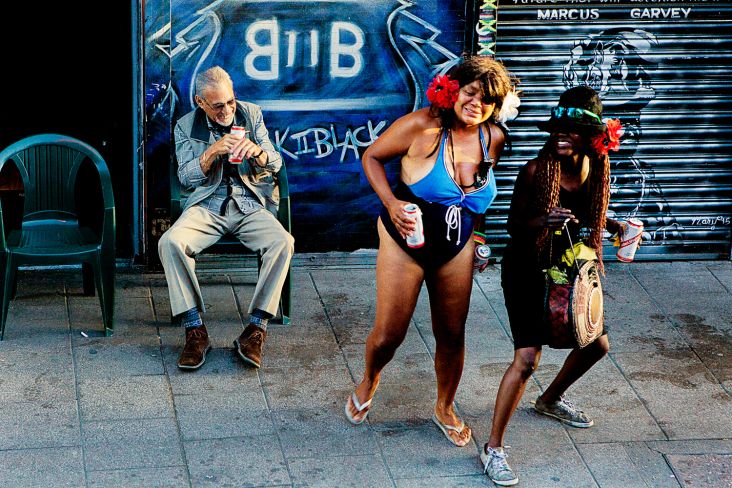Sarah Cowan on Beatrix Potter, uprooting and defeating your inner work-demons
One Owl Please is the studio name of freelance designer and illustrator Sarah Cowan. Specialising in digital and print design, Sarah has worked with a vast array of clients, ranging from large and small businesses and charities to community projects.

After working for several agencies in Manchester, Sarah relocated to the Lake District in 2016. Along with establishing herself in Cumbria with local businesses, she's currently working on building a network for other creatives based in the Lakes.
When not working on her Mac in her cottage, you'll find her roaming the many mountains and lakes of Cumbria.
With a wealth of creative projects under her belt, we caught up with Sarah to quiz her on all things freelance.
Tell us more about yourself. How did you get to where you are now?
I grew up in a small village in the Lake District called Lamplugh. I'm not even sure it can even be classed as a village, as it's so scattered about, and there are probably more cows than people.
This was before the internet was a thing, so back then, you had to find other ways to entertain yourself. When I wasn't going for walks, making dens or collecting brambles, I would sit and draw for hours on end, write stories and make my own books. More than anything, I wanted to be Beatrix Potter, which is kind of still my dream, to be honest.
I enrolled on illustration at university, which ran in tandem with the graphic design course. On seeing what the design students were doing, I realised it was design that interested me the most, so I worked on combining this with my love of drawing and illustration. One Owl Please came from when I would make badges to sell on my Etsy shop. I still take them to meetings with me now as people are always intrigued to know the story behind the name.
After graduation, the post-grad blues hit me hard. At the time, Cumbria wasn't known for its studios and creative agencies, and with the recent recession still fresh in peoples' minds, not many businesses were willing to stretch their budget for 'excessive' design and print work. I picked up freelance jobs and worked for a small company that was based in a tiny storage unit next to an old mine, which would take me an hour to drive to with my Mac in tow.
I've always had a niggling compulsion to uproot, throw caution to the wind and set off somewhere new. I'm not sure if that's just me or if it's something that naturally comes with growing up somewhere rural and sheltered. I had the feeling there was something bigger happening elsewhere, and I wanted to be a part of it. I saw the Manchester creative communities and its individuals flourish through my virtual window on Twitter, and I saw what I wanted.
I made the decision to move down to Manchester, part of my logic being it was still technically northern and wasn't as scary as London, although the word 'barm' did throw me a bit at first. I lived in the Northern Quarter, which to me was like a little town inside the city centre. After five exciting and busy years of meeting amazing people and working for various agencies, the niggling feeling started again.
I started thinking about what I wanted in life. What was the goal I was working towards? It then hit me that I was working towards living in the countryside, and I also realised I already had this back in Cumbria. I uprooted once more and moved back up to the Lakes, found a little cottage in a town called Cockermouth (don't laugh) and set out in a new direction.
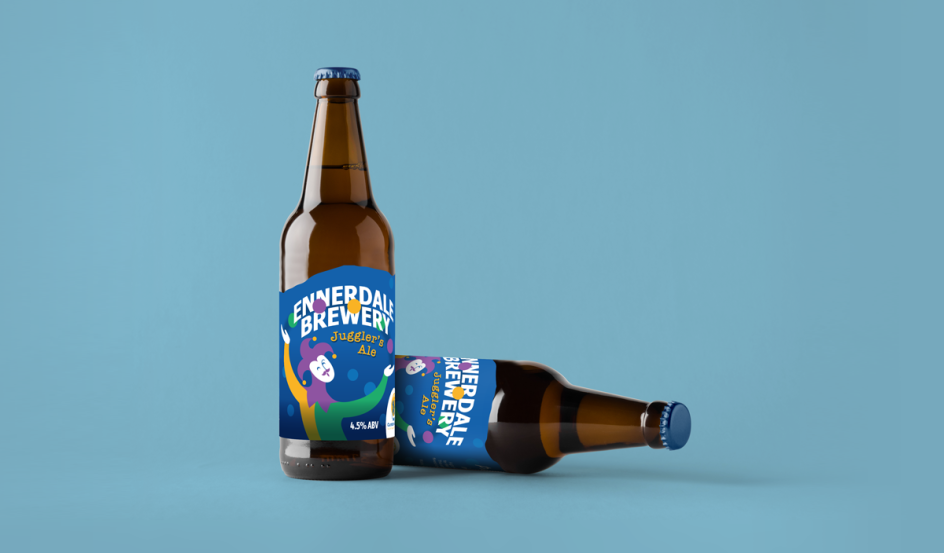
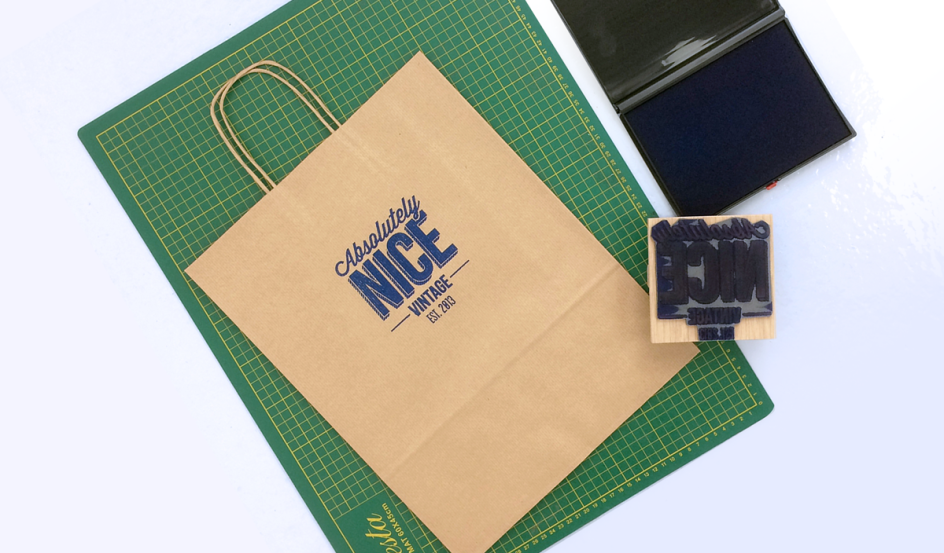
You went freelance last year. How have you found it?
To be completely honest, I was terrified at first. Taking the plunge from full-time work into the world of freelance is what creatives dream of and fear in equal measure. It felt like being dropped into the ocean, and all that I could do was kick as hard as I could and push myself forward. Over the years, I grew to realise that full-time work isn't as secure and permanent as we're led to believe, but with freelance at least, your destiny is in your own hands. There's a greater sense that all the hard graft amounts to something because ultimately – if you don't put in the elbow grease – you won't get any clients, and then you won't make any money.
The very first thing I did was write a to-do list. It began with reaching out to businesses and agencies. These turned into meetings, which turned into work, which led to people seeing my work which turned into more meetings and work. I told the anxious part of me that when I ran out of things on my to-do list, then I could throw in the towel and go back to full-time work. One year later and the list keeps on growing.
What has been the most challenging aspect of going solo?
It may sound strange, but I struggled a lot with the feeling of guilt. In a day job, you feel you must be creative and deliver between set hours and have something at the end of the day to show for it. In my mind, this meant I should be working all hours of the day to justify to myself that I was properly working. When working for yourself, you're confronted with your inner work demons a lot more, be it self-doubt or a sudden drop in confidence. I've been learning when to give myself pats on the back, to not be so harsh on myself, and that a morning spent just replying to emails is still a productive morning! It's an ongoing process where I try and be mindful of old negative thought cycles trying to creep back.
I also missed the luxury of account managers, to begin with. Having someone there to handle clients and suppliers helped when I worked at agencies, but I found you learn so much more when you take on these roles yourself. You'll take cues from your client and get into their heads a lot more efficiently.
Overall if nuclear war started tomorrow or a meteor hit the earth (let's be honest, 2017 keeps finding ways to top itself on the bizarreness scale), I take comfort in knowing that I took the opportunity to do what I wanted. Life's too short, in other (less ludicrous) words.
What has surprised you about freelancing?
Contrary to what I mentioned in my last answer, I've actually never felt happier! Even though freelancing is arguably one of the most stressful decisions you can ever make, I've actually never felt more grounded. I feel I've grown so much as a person over the last year. I've come to realise my worth as a creative and trust myself more than ever.
The only person I have to answer to (after clients) is myself, and there's something quite liberating in that.
How does country life compare to the city in terms of business. For better?
The thing I find most remarkable is the fierce loyalty people have in Cumbria. If you do good work and look after them, they will sing your praises. The atmosphere is less competitive and more collaborative. Cumbria has dealt with a series of hardships during my lifetime alone, from the foot-and-mouth epidemic to repeated flooding over the years. As a result, everyone is eager to raise each other up and see people succeed.
At the end of a lot of client meetings, we'll have swapped contacts with each other, either for other potential clients for suppliers or me to help my clients, or maybe just a great local restaurant. My clients will help spread the word about my business, and I do the same for theirs. I'll buy their products, drink coffee in their cafés, and recommend them to friends. It becomes a mutual, long-term relationship. I've recently agreed to help a pilates instructor with her logo if she helps me with my tight hamstrings – teamwork!
And for worse?
Most businesses in Cumbria now appreciate the need for good branding, websites, and marketing. Ten years ago, it was an uphill struggle to convince a lot of people of the importance of being online.
But sometimes, I'll meet clients who are a bit nervous at the prospect of the current design and digital landscape. Some need a bit of guidance in explaining how their customers think and interact with businesses these days. If a business has only had to rely on printed adverts to get their customers in the past, then why would they feel they have to change that now?
It's my job to advise them as best I can to help keep their business up-to-date and make money. I've learned valuable lessons in patience in the process, and it's helped strengthen my problem-solving skills. Things we took for granted as common knowledge in the city are unheard of to some people in the countryside. You have to empathise with their position as a cautious business owner and make sure what you're saying makes sense, but most importantly, you have to listen to what they need as well.
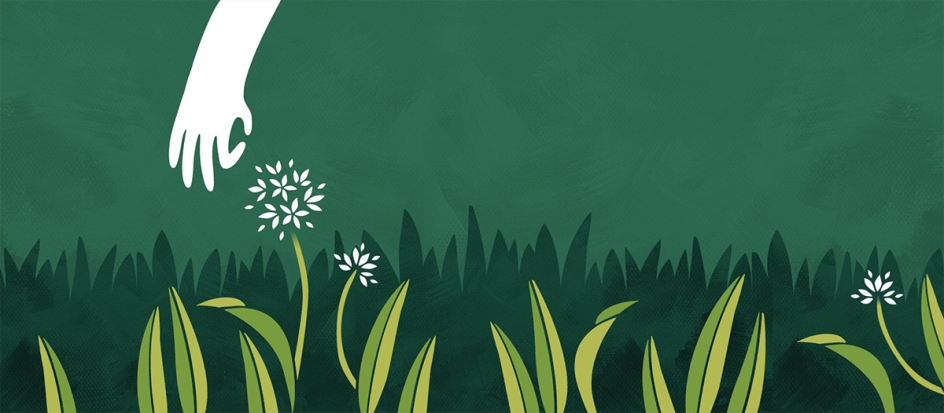

Do you find being in the fresh air and green helps you to be more creative?
Definitely. When I hit a creative block or struggle to motivate myself, there's nothing more productive than getting away from my Mac screen and getting outside. It could be for a walk, or even just to go out into the garden and tend to my plants or watch the birds for a bit. It's almost like resetting my brain. I get back to my desk feeling refreshed and motivated.
Do you think there's a growing trend of people choosing a quieter life?
I do. When I was contemplating moving back to the countryside, I noticed a lot of my friends in Manchester were looking to move out of the city centre too. I think a part of that is getting older, and another part is craving our own quieter space.
Manchester provided respite from the quiet and isolated countryside, but then I started wondering what was offering me respite from the bustling city? While I was thinking about this, it was as if someone had taken off my rose-tinted glasses. I suddenly became aware of how busy everywhere was, the lack of green spaces, and the litter that would pile up in the Northern Quarter over the weekend as it grew more and more popular. I began to notice how free I felt visiting my parents back in Cumbria. It got to the point where if I left it too long between visits back to the country, I could feel almost wilting.
When I first moved down to Manchester and told people I was from the Lake District, some of them were a bit shocked. They couldn't understand why I moved away from a place people spend their lives working on getting to. Ultimately I think it's all about balance. I still go down to Manchester for work, to see my friends and to attend creative events. It's just now I get to go back to the mountains afterwards.
How do you find new business?
"I'm a firm believer that you make your own luck. Therefore the more you put out there, the more you'll get back. I tend to keep a lot of irons in the fire at one time, or fingers in pies, or whatever hot or delicious idiom you prefer. I manage my own clients but also work with agencies locally and nationally when they need my assistance on projects. Sometimes clients find me through my website or by word of mouth. I also like to get out and attend local networking groups, which tend to be laid back and with a good mixture of local businesses and suppliers."
You recently set up a Facebook Group for creative businesses in the Lakes. How's that going?
After only a few months of the group being active, over 80 people have now joined. We already have a great mix of members, from developers to designers, photographers, and illustrators. I set out to the bright lights of Manchester as a graduate because I saw how amazing the creative community was there. On returning to Cumbria, I realised there's nothing to say we can't have that here too. If anything, a supportive network is more needed here since everyone's so scattered around the mountains and lakes!
One of the things that motivates me is seeing and hearing about what other creatives are doing. Hopefully, creating a melting pot for inspiration and contacts will escalate into bigger opportunities. We've already had people making connections and sharing jobs. It's so great to see. I'm hoping to set up the first meet-up over the next few months.
Let's look at some of your recent work. Anything you're especially proud of lately?
I'm pretty proud of all the work I've done so far this year. I consider each project an accomplishment. My clients have ranged from charities, opticians, ceramists, cafés, breweries, marketing, and digital agencies. The varied workload makes designing particularly exciting and keeps me on my toes.
What's currently bugging you. And how do you think you'll fix it?
I know it's only summer, but as they say in Game of Thrones – "winter is coming". I'm becoming aware of the nights drawing in, and my thoughts go to the reality of dark Cumbrian winters. Being self-employed can be quite a solitary existence, and I find winter heightens this feeling. I've always loved my own space and company, but there's a fine line between revelling in playing your eclectic music collection out loud and climbing the walls with cabin fever because you haven't spoken to another human face-to-face all day.
I always try and make sure I have a few meetings planned a week and some leisure activities, too, to try and combat this. I think the next step will be to find some shared studio space. Hopefully, this will help me both kick-start/switch off from work-mode in the darker mornings/evenings."
Finally, if you could provide any advice to illustrators and designers looking to launch their own business, what would you say?
Whenever I feel afraid of change or second guess myself, I always think of the saying, "If it scares you, it might be a good thing to try". I don't think anyone dives into the world of self-employment without thinking it through a thousand times first. It's just finding the courage to go for it, take a leap and grab it with both hands.
Being in limbo between elation and fear that comes with freelance will provide the greatest life lessons. You will make mistakes. You will throw your arms in the air and wonder why you ever chose to do it, but trust me when I say it's all worth it in the end. You learn to appreciate things more. You value your money and your time differently.
What I will say is you have to be organised. Make hay while the sun shines for your rainy-day fund; you'll need it.
It's crucial you learn to bang your own drum. Self-promotion is vital in establishing yourself and having an online presence. But don't forget to get out and meet people face-to-face too. With freelancing, you are your brand. Make the right impression, and people will have you in mind when they or someone they know needs you in the future.
Make sure you also have a good support network of friends, family and other creatives to help give you a boost when you need it. And don't forget to return the favour when they need one as well!




 by Tüpokompanii](https://www.creativeboom.com/upload/articles/58/58684538770fb5b428dc1882f7a732f153500153_732.jpg)

 using <a href="https://www.ohnotype.co/fonts/obviously" target="_blank">Obviously</a> by Oh No Type Co., Art Director, Brand & Creative—Spotify](https://www.creativeboom.com/upload/articles/6e/6ed31eddc26fa563f213fc76d6993dab9231ffe4_732.jpg)









